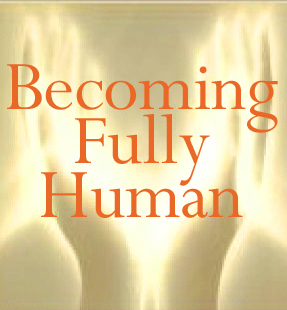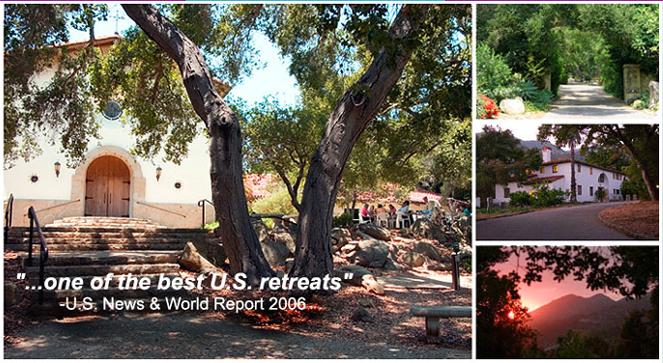
Camille Helminski, Kabir Helminski, Jamal Rahman, Ali Allawi, Seemi Ghazi
Ali Allawi. Few people combine real life experience with spiritual insight as much as Ali Allawi. He has a deep appreciation for the spiritual education once provided by the Sufi orders and the need for reviving an effective language of spirituality. We were delighted to learn that he is also closely associated with our dear friend, Shaykh Fadhlalla Haeri, and thus deeply acquainted with the path of spiritual experience. He has also held positions of responsibility as Minister of Trade and Minister of Defense in the cabinet appointed by the Interim Iraq Governing Council from September 2003 until 2004, and subsequently Minister of Finance in the Iraqi Transitional Government between 2005 and 2006. Before being appointed by the governing council in 2003, Allawi was a professor at Oxford University. Having worked as a merchant banker in London, he was elected as a Senior Visiting Fellow at Princeton University for 2008-2009.
In January 2007 the Independent newspaper published an article by Allawi outlining a blueprint for peace in Iraq. The article was praised by Independent commentator Patrick Cockburn, who argued that it was “by far the most perceptive analysis of the extent of the disaster in his country, and how it might best be resolved.” Allawi has since written The Occupation of Iraq: Winning the War, Losing the Peace and ‘The Crisis of Islamic Civilization’. Both books were well received by critics and the reading public. The New York Times Book Review called The Occupation of Iraq “…the most comprehensive historical account of the disastrous aftermath of the American Invasion.” In October 2009 the Washington Institute for Near East Policy announced that the ” Crisis of Islamic Civilization” was awarded the Silver Prize of its annual book prize. In December 2009, The Economist named The Crisis of Islamic Civilization one of the Best Books of 2009. In a recent interview with The Diplomat he discussed his views on modern Islamic civilisation. He considers that, as a result of the expansion of Western colonial powers and modernisation over the last 200 years, Islamic civilisation is fast losing its élan and has been reduced to two aspects, political and religious while economic and cultural aspects no longer have an impact on the Muslim world.[1]
Seemi Ghazi. teaches Arabic at the University of British Columbia in Vancouver. Krista Tippett wrote these words about Seemi for her acclaimed NPR program, “Speaking of Faith”: Seemi Ghazi is thoroughly modern, thoroughly American, yet steeped in ancient Islamic spiritual traditions. Seemi Ghazi, whose mother tongue is Urdu, was raised in the scholarly and poetic traditions of Pakistan and Muslim India. She takes us inside her experience of the Qur’an itself. And of course the centrality of the Qur’an in Islam cannot be overstated. But as Michael Sells first helped me understand and Seemi Ghazi drives home with elegance, the Qur’an does not function like a book in the strict western sense of a text that is meant to be read. The word Qur’an means “recitation” — it is considered to be the verbatim word of God, revealed to the Prophet Muhammad over a number of years. Its power in Muslim lives has a strong aesthetic component. The Qur’an’s intrinsic lyricality and musicality when recited form an essential aspect of its mystery and even its message. Seemi Ghazi is a gifted musician and a non-clerical reciter of the Qur’an. She likens Qur’an to “divine song”; and she brings that idea compellingly to life in this program. I believe that this is one of the loveliest hours we’ve ever created. Omid Safi and Seemi Ghazi leave one with a palpable sense of beauty, nuance, and gentleness in Islamic faith that no headline, no speech, and no list of beliefs could ever convey. They put stories and voices, music and words, to this line of the poet Rumi, one of the defining voices of Sufism, on the ultimate effect of the “surrender to God” that Islam commands:
“When we have totally surrendered to that beauty,
We shall be a mighty kindness.”
Jamal Rahman is a Muslim Sufi minister originally from Bangladesh. He is co-minister at Interfaith Community Church in Seattle, Washington, cohost of Interfaith Talk Radio, and adjunct faculty at Seattle University. Jamal travels often, teaching classes, workshops, and retreats locally, nationally, and internationally. He is the author of The Fragrance of Faith: The Enlightened Heart of Islam, and a coauthor of two new books: Out of Darkness, Into Light: Spiritual Guidance in the Quran with Reflections from Jewish and Christian Sources, and Getting to the Heart of Interfaith: The Eye-Opening, Hope-Filled Friendship of a Pastor, a Rabbi, and a Sheikh. Jamal’s passion lies in interfaith community building. He remains rooted in his Islamic tradition and cultivates a “spaciousness” by being open to the beauty and wisdom of other faiths. By authentically and appreciatively understanding other paths, Jamal feels that he becomes a better Muslim. This spaciousness is not about conversion but about completion. Jamal has an abiding faith in the power of heart-to-heart connections to encompass differences and dissolve prejudices. He enjoys programs that celebrate life and unity through delight, laughter, and food. He has a private spiritual counseling practice serving individuals and couples, and is available for interfaith weddings and ceremonies. Jamal offers a variety of classes and workshops, including the popular “Blush of the Beloved,” a course in spiritual deepening and discernment drawing upon the practices, insights, and wisdom within Sufism, Hinduism, Buddhism, and Taoism.
Camille Helminski is Co-Director (and co-founder) of The Threshold Society (www.sufism.org), a non-profit organization rooted within the traditions of Sufism and dedicated to facilitating the direct personal experience of the Divine.
She has been working within the Mevlevi tradition of Sufism for over thirty years and has helped to increase awareness of the integral contribution of women to the spiritual path of Islam with her book, Women of Sufism: A Hidden Treasure, Stories and Writings of Mystic Poets, Scholars, and Saints. She was also the co-founder and co-director of Threshold Books which helped to bring into English many classic texts of the Sufi tradition. She has co-translated a number of volumes of Sufi literature, including the Sufi classic Awakened Dreams, and Jewels of Remembrance (excerpts of the Mathnawi of Mevlana Jalaluddin Rumi) and is the first woman to translate a substantial portion of the Qur’an into English: The Light of Dawn, selections from the Qur’an for daily contemplation. She has authored two anthologies for the Book Foundation (www.thebook.org), The Book of Character, Writings on Virtue and Character from Islamic and Other Sources and The Book of Nature, A Sourcebook of Spiritual Perspectives on Nature and the Environment, as part of a new curriculum for Islamic education. Her most recent publication is Rumi’s Sun, The Teachings of Shams of Tabriz.
She has been designated as one of the spiritual leaders of WISE (Women’s Initiative in Islamic Spirituality and Equality www.wisemuslimwomen.org) and recently attended the 2nd international gathering of WISE in Malaysia to which Seemi Ghazi was also invited.
As a core faculty member of the Spiritual Paths Foundation (www.spiritualpaths.net) which promotes peace, respect, and mutual understanding between peoples of diverse religious and spiritual traditions, she is also currently involved in the creation of a graduate program in Interspirituality rooted in contemplative practice.
Kabir Helminski is the Co-Director of the Threshold Society, a non-profit educational foundation that has developed programs that provide a structure for practice and study within Sufism and spiirtual psychology. He has translated many volumes of Sufi literature, including many works of Rumi, and is the author of two books on Sufism: Living Presence and The Knowing Heart. Kabir began the study of Sufism with Suleyman Hayati Dede of Konya and was officially recognized as a Shaikh of the Mevlevi Order of Sufism in 1990, by the late Celalettin Celebi, Head of the Mevlevi Order.
From 1980 until 1999 he was the director of Threshold Books, one of the foremost publishers of Sufi literature. Between 1994 and 2000 he toured with the Whirling Dervishes of Turkey bringing the spiritual culture of the Mevlevis to more than 100,000 people. His books have been translated into Spanish, Italian, Dutch, German, Russian, Indonesian, and Turtkish. He has an M.A. in transpersonal studies and an honorary Ph.D. in literature from Selçuk University, Konya, Turkey.
For more than thirty years, Mr. Helminski’s focus has been developing and sharing a contemporary approach to Islamic concepts and practice, both within the Islamic community and outside of it. In 2001 he was the first Muslim to deliver the prestigious Harold M. Wit Lectures on Spirituality in Contemporary Life at Harvard Divinity School. Kabir lives with his family near Santa Cruz, California, and now focuses on writing, teaching, and developing a program of spiritual education with an international team of scholars. He is also a core faculty member of the Spiritual Paths Institute (spiritualpaths.net). His most recent publication is Love’s Ripening, Rumi and the Journey of the Heart (Shambhala 2008).
He is one of the signatories of A Common Word Between Us and You, an open letter by Islamic scholars to Christian leaders, calling for peace and understanding.
He is a Co-Director of The Book Foundation and author of the recently published The Book of Language, Exploring the Spiritual Vocabulary of the Qur’an, with an introductory chapter by Prince Ghazi bin Muhammad.





